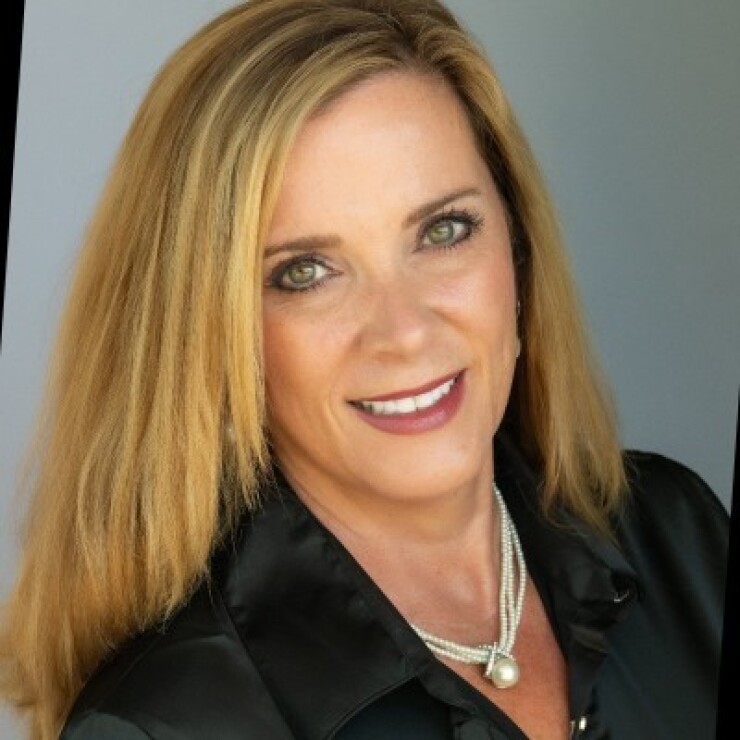For all the perceived
Shareen Minor is the chief revenue officer at Ontellus, a records retrieval and claims intelligence company. For the past three years, the Gen X-er has worked closely with Fraley Morton, a Gen Z-er at the start of her career. The duo met at a past employer and made the leap to Ontellus together, where Morton, now a product marketing manager, continues to collaborate closely with Minor and evolve her own career path.
"Shareen pushes me to think about myself and my personal brand, and how to build relationships in business," Morton says. "She's not a 'yes' person, and she doesn't just tell me when I'm doing well. She pushes me beyond what I would typically do for myself."
Morton's enthusiasm is representative of her generation. Eighty-six percent of young workers are looking for bosses and managers that help them grow, according to Springtide Research Institute. And yet, just 38% feel they have someone in their life who's modeling success.
Read more:
As the workforce's
From Minor's perspective, Morton brings a wealth of new ideas and new skill sets to the workforce, enabling them to collaborate and creatively problem solve across departments. The pair recently spoke to EBN about their working relationship, why career growth is a key ingredient to workplace happiness, and why mentorship is not something that can be forced.
How did you two first get connected? What made you want to work together in a more focused way?

Morton: When I first met Shareen, I was 24, working at my first job out of college in the male-dominated insurance industry. And I was so excited when I heard that Shareen — a woman with a crazy impressive track record — was stepping into a leadership role at the company. On her first or second day, she sent me an invitation to meet, and what started as a 20-minute introduction call ended up being much longer, and I walked away with a career-growth roadmap and a secret plan for me to report directly to Shareen. I had been feeling a little stagnant, and after that first call, I was completely reenergized.

Minor: Fraley was working directly with the CEO at the time, and when she told me she'd like to work for me, I told her that was a conversation she'd have to have with the CEO. And he called me two weeks later and said that Fraley wanted to report to me. He understood that we could create a good position for her, one where she could really lean into marketing. Her willingness to have that conversation upfront with the CEO of the company, and really identify what she wants and champion for herself? It really impressed me.
Read more:
Morton: But I feel like I rarely champion for myself.
Minor: Maybe not right away, but you identify an opportunity, we'll discuss it, and then you'll take on the next steps. I've seen Fraley become very strong in that way, and I hope that most people her age do find someone to ask for advice more. But it's hard — I remember being young and thinking, "How do I navigate this?" And Fraley has been good at identifying and talking through challenges and opportunities.
As colleagues, when did you feel like a close relationship was really cemented professionally?
Minor: When I joined our previous employer, I laid out a three month calendar of what I wanted to do and achieve. And Fraley jumped right in to not just execute along the way, but to share ideas and teach me things. Yes, she told me what TikTok was, but she also shared ideas about
What are some of the generational differences you've noticed in how you approach problems? And how has that helped you work together, or create speed bumps?
Minor: When I was first managing millennials, I had to read a book on how to coach millennials, because it was so different for me. It's been easier to manage Gen Z, and I think it's partly because I have realized that there's a gap — when I was working with millennials, I just tried to identify with them. But now I embrace our differences. I recently tried to repost something on LinkedIn and made an error, and Fraley teased me and said, "You're better than this, Shareen," and showed me how to fix it. She's comfortable enough with me, and I'm vulnerable enough with her to ask for help.
Read more:
Morton: Shareen has a million ideas — she'll send me TikToks at 11 p.m. about ideas for email campaigns, and she'll text me when she's on the treadmill in the morning about some podcast she wants me to listen to. She has so many ideas that it changes the way I think about the platforms I engage with every day and how we can better utilize them in our work. It's a good balance between ideas and working through them together to execute. There are two other young women on my team, and I see the time and effort Shareen gives to all of us. Being there and listening goes a long way.
Shareen, mentorship has been a consistent part of your career. Now that you're in a leadership position, how do you think about it?
Minor: Mentorship has to be mutually beneficial for each person, and it can't be forced. It's not because you were assigned to a person or because you want to move your career forward and leverage that political advantage. It's because you need to have someone invested in you. For me and the women I've mentored — and I've seen their success and taken a few of them from company to company — it's so rewarding. I don't see it as sponsorship or mentorship, it's just about creating somebody that can grow in this industry.






